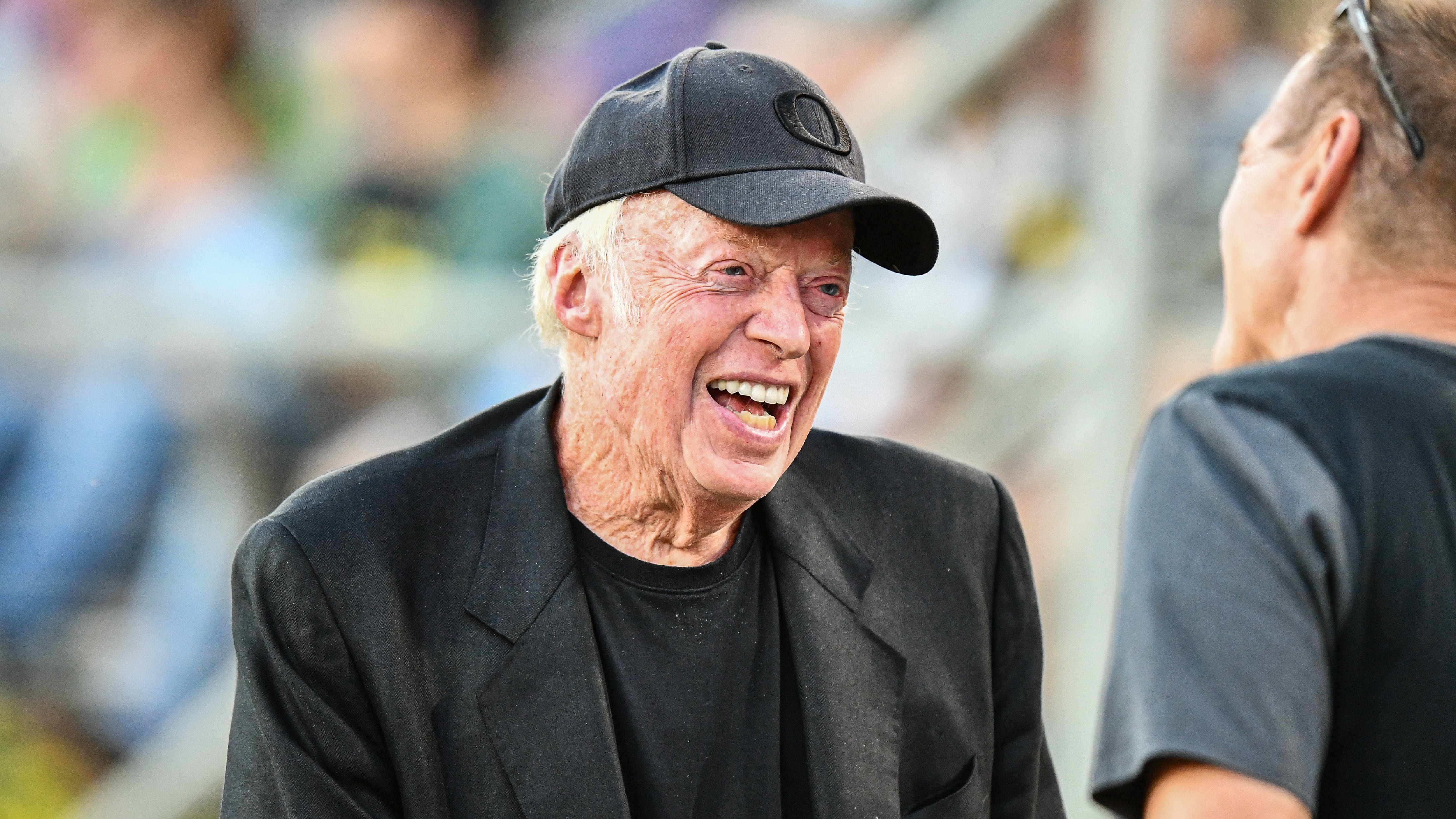Phil and Penny Knight will donate $2 billion to the Knight Cancer Institute, the center announced this morning, a “monumental” sum officials say will “revolutionize” cancer care.
News of the donation prompted audible gasps in the crowded room of institute staff and press at Oregon Health & Science University where it was announced. Officials described the sum as the largest single gift to any institution ever.
“For OHSU and Oregon, there will always be the time before today and after today,” Gov. Tina Kotek said.
In practice, officials say the money will allow the institute to hire hundreds more people and care for far more patients—perhaps, five years from now, twice as many as it does now.
Officials emphasized a vision for a team of navigators, whose job is to offer a kind of “concierge” service to cancer patients, walking them through the terrifying and often confusing care process.
“Imagine if you made one phone call, and there was a caring, compassionate voice on the other end of the line that said, ‘We got this one,’” said Brian Druker, the celebrated cancer researcher who will be the organization’s inaugural president, and who had long led the cancer institute until stepping down last year. “‘We’ll help you every step of the way. We’ll make sure those appointments get made. We’ll make sure that we can arrange for housing. We’ll make sure that if you need some mental health counseling because of this anxiety over your diagnosis, we got your covered.’ Why can’t we make it simple and easy so patients can focus on their health?”
The Knights’ investment was inspired by Druker’s vision to integrate the benefits of scientific discovery they have supported in the past with “unmatched cancer care,” said a news release put out by OHSU. “This fully integrated cancer care model will expand and accelerate diagnostics, ensure access to innovative clinical trials informed by Knight researchers and simplify the experience for patients and families.”
The other big change tied to the announcement is structural. The Knight Cancer Institute has historically operated within OHSU. With the announcement, officials said the Knight Cancer Institute will become its own “self-governed entity within OHSU,” with its own oversight board.
According to OHSU, the Knight Cancer Group will be created to lead the Knight Cancer Institute and manage OHSU’s cancer services.
Details remain unclear. Asked about the model, Druker said the cancer institute would continue to work closely with OHSU, but that the change would allow it to hire faculty, set compensation rates, and compete nationally to hire people to come and work in Oregon, making these decisions quickly and efficiently.
The broad OHSU board is appointed by the Oregon governor. Asked about whether the new Knight Center board would have a public component, Kotek said she doesn’t yet know.
“We’re focused on the gift today,” she said. “But we’ll certainly have a conversation about the governing structure.”
The funding is projected to be given over a 10-year period, Druker said, adding that some of it will go into an endowment fund.
The news marks a new era for Druker’s long relationship with OHSU. His discovery of a leukemia treatment decades ago had burnished the university’s reputation and led in part to the Knights’ 2013 gift of $500 million to OHSU, the largest donation the university had till then received.
After years at the Knight Cancer Institute helm, however, Druker stepped down last year as its CEO, stating that the decision reflected in part his sense that OHSU was no longer a place to do cutting-edge research.
“I still have more I want to do to advance cancer research and improve patient care. With much reflection, I have concluded that at this time those goals are no longer achievable at OHSU,” Druker wrote at the time. “We have lost sight of what is crucial and forgotten our mission. I will continue to see patients every week who always remind me why the work we do is so important.”

